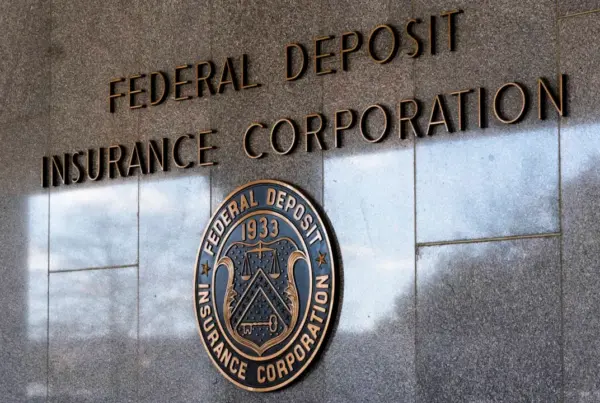FDIC’s Proposed Rule on Brokered Deposits: Key Insights for Financial Institutions
Introduction
On [insert date], the Federal Deposit Insurance Corporation (FDIC) proposed a significant regulatory update concerning brokered deposits. This proposed rule aims to clarify and expand the definition of “deposit broker” and enhance the regulatory framework governing deposit placement activities. The significance of this update lies in its potential to mitigate risks to the deposit insurance fund and improve the stability of the banking sector. Historically, the regulation of brokered deposits has been governed by Section 29 of the Federal Deposit Insurance Act (FDIA). The existing framework has faced criticism for its lack of clarity, leading to compliance challenges for financial institutions. The primary concern addressed by this regulatory action is the need to adapt to the evolving landscape of financial services, particularly with the rise of technology-driven platforms that facilitate deposit placements.
Key Regulatory Changes & Analysis
1. Expansion of the Definition of Deposit Broker
The proposed rule significantly broadens the definition of “deposit broker,” impacting a wider range of entities involved in deposit placement.
- Previous Definition: Limited to traditional brokers who directly place deposits with insured depository institutions.
- New Definition: Includes entities that facilitate deposits through third-party arrangements, encompassing fintech companies and online platforms.
2. Clarification of Exemptions
The FDIC seeks to refine the exemptions available to certain entities under the brokered deposit framework.
- Current Exemptions: Certain financial institutions, such as banks and credit unions, are exempt under specific conditions.
- Proposed Changes: The rule will clarify the criteria for these exemptions, potentially affecting how institutions engage in deposit placement activities.
3. Enhanced Reporting Requirements
The proposed amendments introduce new reporting obligations for deposit brokers.
- New Requirements: Entities classified as deposit brokers will be required to submit detailed reports to the FDIC, including information on deposit placement activities and associated risks.
- Impact on Compliance: Financial institutions will need to implement systems to ensure compliance with these enhanced reporting standards.
4. Increased Regulatory Oversight
The FDIC plans to implement a more rigorous supervisory framework for deposit brokers.
- Enhanced Scrutiny: The FDIC will intensify its examination and monitoring of deposit brokers to ensure compliance with the new regulations.
- Potential Consequences: Non-compliance may result in enforcement actions, including fines and restrictions on deposit-taking activities.
Legal and Industry Implications
The proposed rule presents several compliance challenges and operational implications for affected financial institutions:
- Compliance Burdens: Institutions may incur significant costs to align their operations with the new reporting and compliance requirements.
- Legal Risks: The expanded definition and increased scrutiny may lead to potential legal challenges, particularly regarding the classification of certain entities as deposit brokers.
- Recent Trends: The financial services industry has witnessed increased enforcement actions related to deposit activities, underscoring the importance of robust compliance measures.
Recommended Actions & Compliance Strategies
Financial institutions and affected parties should consider the following steps to prepare for the proposed regulatory changes:
- Conduct Internal Reviews: Assess current deposit placement practices to identify potential classifications as deposit brokers.
- Update Compliance Programs: Revise compliance frameworks to incorporate new reporting requirements and operational adjustments.
- Monitor Deadlines: Stay informed about the timeline for final rule implementation and any public comment periods. The FDIC is expected to finalize the rule by [insert expected date].
- Engage in Public Comment: Affected parties should participate in the public comment period to express concerns or support regarding specific aspects of the proposed rule.
Conclusion & Next Steps
The FDIC’s proposed rule on brokered deposits represents a critical shift in regulatory oversight, aimed at enhancing the stability of the banking sector. Financial institutions must proactively address the implications of these changes, including potential compliance costs and operational adjustments. The timeline for implementation remains uncertain, and stakeholders should remain vigilant for further regulatory developments. Given the contentious nature of these changes, potential legal or legislative challenges may arise, influencing the final form of the regulation and its enforcement. By taking proactive measures to address these regulatory updates, financial institutions can mitigate risks and ensure compliance with the evolving landscape of FDIC regulations.


